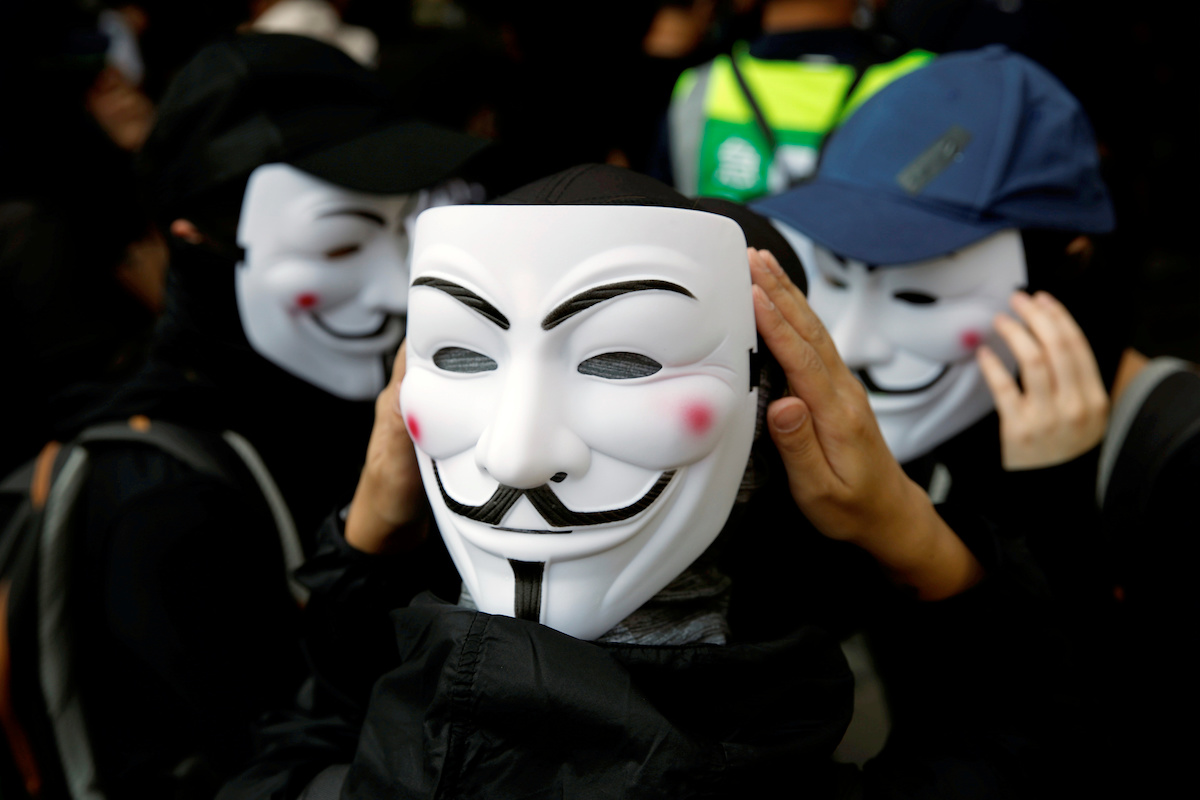Law enforcement authorities in Hong Kong have technology that can match faces taken from video surveillance with information on police computers, raising fears it could be being used to help put down ongoing pro-democracy protests, according to sources.
The technology, supplied by an Australia-based firm called iOmniscient, can scan any footage and match faces in a crowd or vehicle license plates to a police database, said the sources on condition of anonymity in a Bloomberg report.
Its prompted fears Hong Kong is adopting mainland-style surveillance, despite authorities being required to inform the public about such surveillance under local privacy laws.
As a result, this has seen hardcore protesters don masks and use umbrellas while attacking so-called smart lampposts, CCTV cameras and other forms of vandalism.
This in turn moved authorities into banning face masks earlier this month, sparking further violence.
“Hong Kong people are afraid of being captured by the CCTV cameras,” Bloomberg quoted Bonnie Leung, a district councilor and a former leader of the Civil Human Rights Front, which has organized some of the biggest protests, as saying. “Why are people still wearing face masks? Because of the police surveillance.”

Police, however, have not admitted whether they have used this technology during the protests, while iOmniscient, the company who supplied it has refused to say if it was being used for crowd control in Hong Kong.
If faces or names are being matched to identity markers, this would be subject to privacy laws, according to Stuart Hargreaves, a law professor at Chinese University of Hong Kong.
“Is the ‘facial recognition’ simply the police combing through video footage for ‘known individuals,’ or is there some kind of automated AI [Artificial Intelligence] system at play?” Hargreaves told Bloomberg.
“The truth is we simply do not know.”
Authorities have tried to dispel the concerns by saying this technology has not been part of recently installed lampposts and CCTV cameras.
However, this reassurance has not convinced protesters, especially since riot police have tried to avoid cameras when making arrests. Some have reportedly worn masks themselves or removed ID numbers from uniforms in order shield their activities or avoid becoming potential victims of reprisals by tech-savvy protesters online known as doxxing.
Senior figures of one Hong Kong tech firm TickTack Technology were targeted after protesters tore down one of its smart lampposts and found a Bluetooth Beacon the company used to signal its location to devices including smartphones.
The government denied the lamppost or others like it had facial recognition capabilities.
This fear of facial recognition technology, along with an upsurge in violence, has seen the use of masks grow over recent weeks despite the mask ban.
However, the defiance of the protesters has not waned.
“The government is just trying to take away our rights,” Bloomberg quoted one masked protester called Angus as saying when Hong Kong’s chief executive Carrie Lam announced the mask ban. “We don’t want to be China.”







